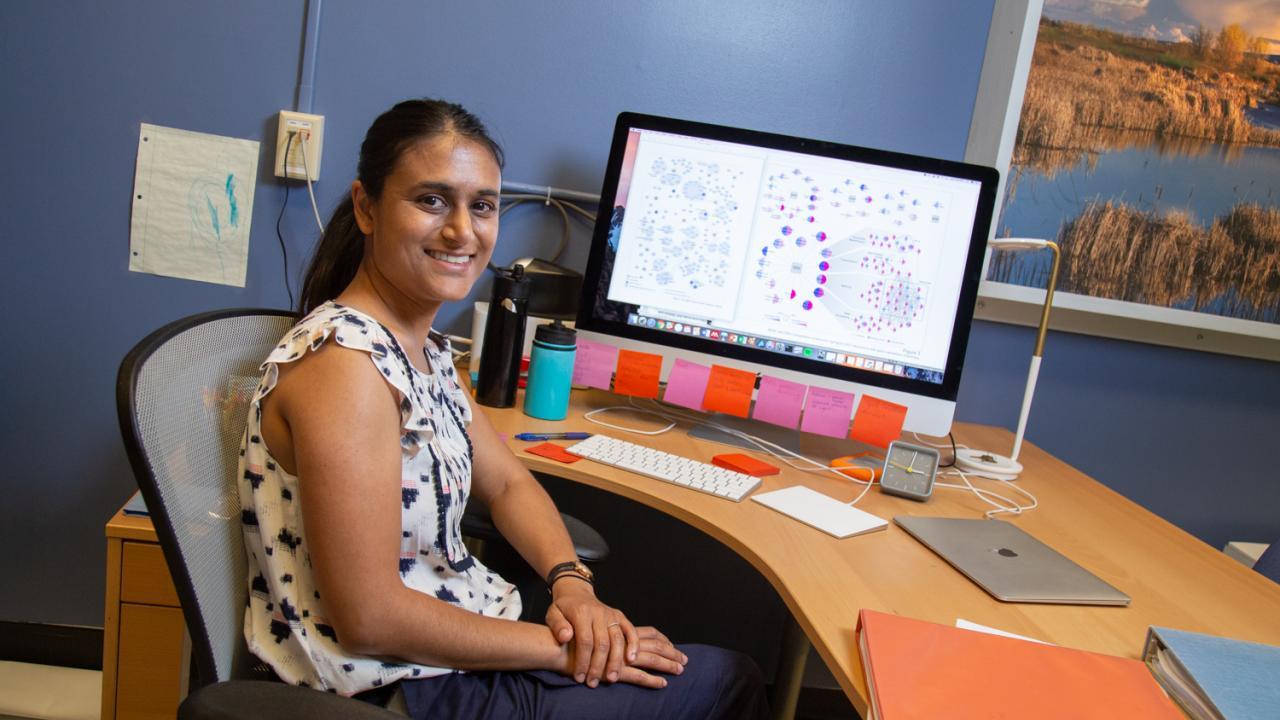
Priya Shah Recognized for Exceptional Innovation
Assistant Professor Shah wins $40,000 UC Davis Early Career Faculty Award for Creativity and Innovation
Chemical engineer and microbiologist Priya Shah is unraveling the essential aspects of arboviruses - viruses transmitted by mosquitoes, ticks, or other arthropods - aiming to thwart this major source of emerging diseases by identifying novel therapeutic targets.
For her innovative research, she has been awarded $40,000 from a UC Davis endowment set up by anonymous donors. The awards, given annually since 2016, are designated for non-tenured ladder-track faculty.
A background of excellence
Shah joined UC Davis in 2017 after having been a postdoctoral fellow at UC San Francisco since 2012. She earned her Ph.D. in chemical engineering at UC Berkeley and Bachelor of Science degree, also in chemical engineering, at the Massachusetts Institute of Technology.
Selected as a Hellman Fellow in 2021, Shah holds dual appointments in the Department of Chemical Engineering, College of Engineering, and the Department of Microbiology and Molecular Genetics, College of Biological Sciences, and also is affiliated with the Chemical Engineering Graduate Group and the BMCDB (biochemistry, and molecular, cellular and developmental biology) Graduate Group, as well as the Genome Center. Her award will go toward her project titled “Common Features of Arbovirus-Host Protein Interactions.”
“Viruses use physical interactions with host proteins to co-opt their functions for replication,” she explained in her abstract before zeroing in on arthropod-borne viruses. Arthropods are invertebrates with exoskeletons, such as mosquitoes — an insect that she noted is relevant to this discussion of arbovirus transmission.
“Compared to a virus like SARS-CoV-2, in which most transmission is now human-to-human, arboviruses have to cycle between two very different species,” she said, referring to arthropods and humans.
“This raises the fundamental question: how do arboviruses physically hijack cellular processes to facilitate the same basic process of viral replication in two very different hosts?” Shah said she aims to answer the question by creatively applying proteomics to the mosquito-borne chikungunya virus. Proteomics allows researchers to look at all the proteins in a sample at once, including proteins that interact with each other. These protein interactions have the potential to be therapeutic targets, with the goal of interrupting viral transmission.
About the award
The UC Davis Early Career Faculty Award for Creativity and Innovation was established to promote and support exploration, creativity, and advances in research by UC Davis faculty. It is intended to encourage talented early-career faculty to develop their own intellectual pursuits. It is a one-time-only unrestricted cash award made to an Assistant Professor to support exceptional scholarly or creative work.
